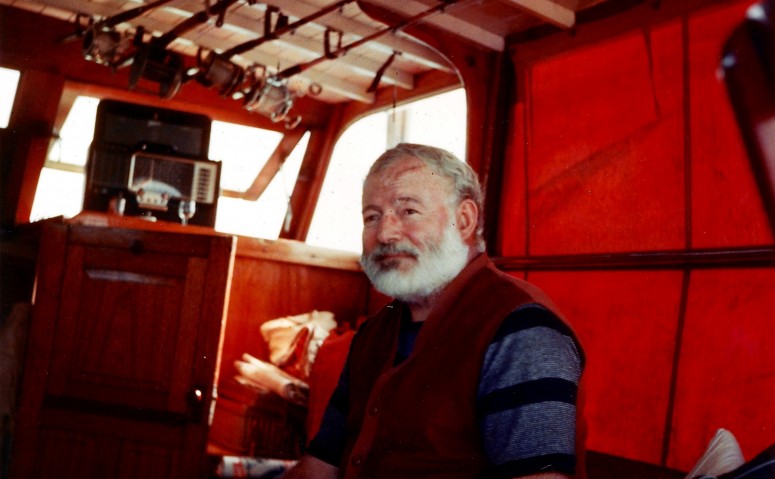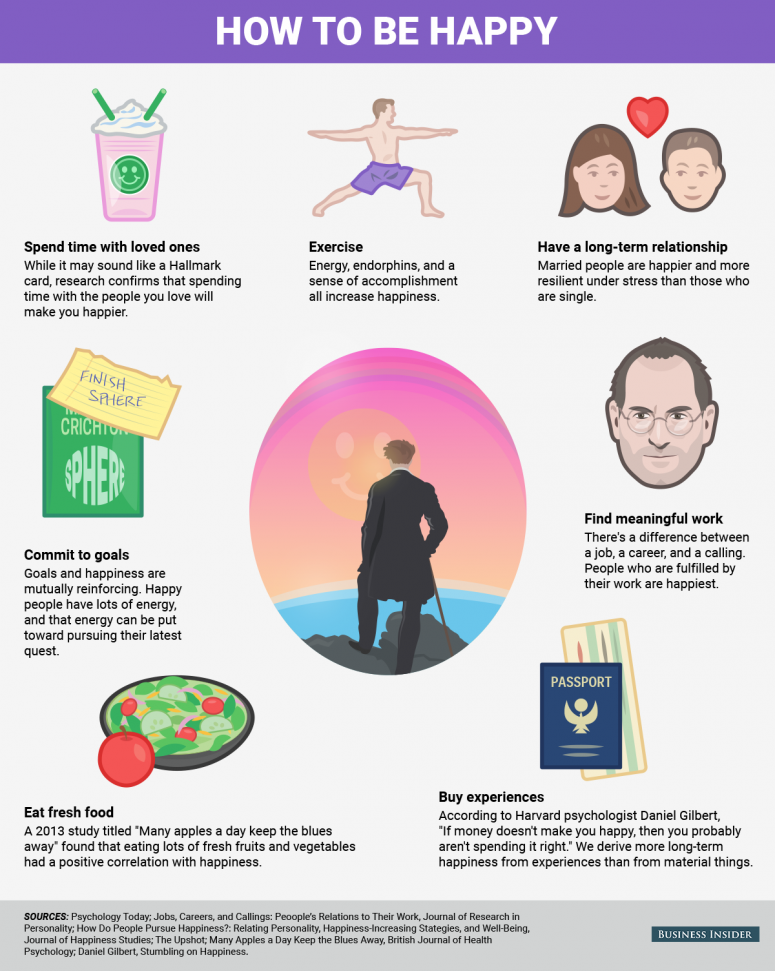
Many years ago, I started a habit of writing regular gratitude letters to people who helped me, changed my perspective, or did something nice for me or my family. I even started writing letters to mentors from my past, authors of books that I admired, directors of movies I liked, musicians whose music I enjoyed.
To this day, I continue to write gratitude letters for the following reasons:
- Gratitude letters force us to feel grateful. That’s important because gratitude is the the number one way to increase our happiness, satisfaction, and fulfillment in life. It’s science, no joke.
- Gratitude letters spread joy. When people feel good about themselves, they are nicer to others and feel better about themselves. So if you want to make the world a better place for yourself and others, gratitude letters are an easy way to spread joy and increase kindness.
- Gratitude letters force you to write in different ways. I’ve written books, long-form articles, business reports, blogs, video scripts, and everything in between. But to this day, gratitude letters are some of the most challenging things for me to write, simply because they demand genuine thoughts and feelings. This makes me a better writer I believe.
Don’t know where to start? Consider this approach: “Close your eyes and think of someone who did something important for you that changed your life in a good direction but who you never properly thanked. It could be that you’re really grateful to a teacher who inspired your love of acting and who persuaded you to try for drama school when everyone else was dead set against it. Maybe you’d like to thank your boss or a colleague for helping you with a particularly tricky project at work. Or perhaps you choose to write a friend who helped you through a tough time… Describe specifically what they did and what influence it had on you. Let them know what you are doing now, and mention how you often remember what she did.”
Although I’d say a large portion of my gratitude letters go unanswered, that’s not why I write them. But it’s a sweet experience when I do get an answer. One famous writer wrote me eight months later saying he kept my email at the top of his inbox to remind himself that he was a good writer. Another director from Los Angeles wrote back and invited me to lunch the next time I was in town. The college professor that inspired me to become a writer replied saying he had no idea and that my email was a good reminder to him that we never know how our efforts touch the lives of others.
Moral of the story: people are amazing and writing gratitude letters is good for everyone.

According to years of behavioral research, here’s a great explanation of how buying time, buying experiences, and buying things for others can scientifically turbocharge our happiness.

Shutterstock
My wife and I were talking to our children recently about how to spend money for maximum impact, fulfillment, and happiness. After researching the issue further, this is what I came up with: Continue reading…

Here’s some scientifically tabulated advice. They’re called the top five regrets of the dying. In short, a nurse that took care of lots of people on their deathbeds asked and recorded their most common regrets. They are as follows, along with my pithy commentary: Continue reading…

Photo: Blake Snow
I recently started reading The Nature Fix by Florence Williams.
In her introduction, Williams reports that most empirical evidence suggests there are four ingredients for happiness, namely feeling enmeshed in a community of healthy friendships (i.e. “it takes a village”), having your basic survival needs met, keeping your brain stimulated and engaged, and working for something that’s larger than yourself.
There’s increasing evidence, however, for a fifth ingredient, Williams argues: Regular outdoors, getting outside, or “forest bathing.”
I certainly won’t argue with any of those. Surrounding myself with healthy relationships, having my basic needs met, keeping my brain stimulated through learning and interesting work, volunteering, and staying outdoors has done the trick for me.
Easier said than done. But when you break it down like that, it also seems highly attainable.
Below is an edited summary of Eric Barker’s excellent list written for TIME Magazine:
 Get happy yourself. How happy you are dramatically affects how happy and successful your kids are. So plan time each week to nurture your own relationships and hobbies.
Get happy yourself. How happy you are dramatically affects how happy and successful your kids are. So plan time each week to nurture your own relationships and hobbies.- Teach kids to build relationships. Encourage them to invest in relationships and perform small acts of kindness to build empathy.
- Expect effort, not perfection. Banging the achievement drum messes kids up. The research is very consistent: praise effort, not natural ability. Continue reading…

credit: blake snow
Life is hard sometimes. It’s always hard if you do any of the following with regularity: Continue reading…

credit blake snow
A happy wife is a happy life. Or so goes a popular adage.
This goes both ways, of course. But I suspect the saying is written primarily for men because we probably fail as spouses more often than women.
Either way, what’s the key to successful marriage?
First and foremost, always pretend you’re still courting your spouse, writes popular Quora author and Cal physicist Richard Muller. “Seduce. Entertain. Be nice,” he says. “Do all those things you did when you were trying to win her over.”
That means taking a sexual interest in them (not just maintenance, mind you—that’s not love-making), making them laugh, smile, and feel good about themselves, and respecting them no matter what (as opposed to misjudging, resenting, or objectifying them).
Lastly, “Don’t take them for granted, ever,” Muller says. Do this long enough and you’ll probably get divorced.
In other words, surprise them. Marriage is not a given. Do all you can to earn your keep. Contribute. Give. Don’t just take. Be the spouse you’d like to have.
Sage advice, Mr. Muller.
I, Blake Snow, wrote this for my children, but figured you might enjoy it too. According to science, the following habits lead to a healthy, happy, and sustainable lifestyle: Continue reading…

Hemingway aboard his boat off the coast of Cuba (1950)
As compiled by Highbrow:
- “The best way to find out if you can trust somebody is to trust them.”
- “The world breaks everyone, and afterward, some are strong at the broken places.”
- “I like to listen. I have learned a great deal from listening carefully. Most people never listen.”
- “Happiness in intelligent people is the rarest thing I know.”
- “I drink to make other people more interesting.”
- “As a writer, you should not judge, you should understand.”
See also: My review of Old Man and The Sea

Good summation of advice that certainly mirrors my independent research. #bookmark
This formula, from the ’70s of all decades, is elegantly simple:
frequency of lovemaking – frequency of quarrels = marriage success
Not sure if it’s causation or correlation, but it certainly mirrors the ups and downs of my marriage. Oh, la la!

I was searching for “internet authors” last week and stumbled on this man’s webpage, who dubs himself “the best-selling Internet author of all time.” I chuckled a bit upon reading his claim and seeing his photo, until I realized he knows what he’s talking about on at least one subject, How to get rich:
In the long run, it’s what you do day to day, over many years, that makes the difference. When you fall in love with what you do, and you work hard for a long time, you are offering the world your very best.
Think of the economy as a huge complex organism. If you learn to contribute in the right way, the economy will reward you. If not, you will be poor. The recipe for success and wealth is simple. Find the work that is best for you. Spend years engrossed in your work. Do a bit of long-term planning.
If you follow these guidelines, I can’t guarantee you will become a millionaire. What I do guarantee is you will live a useful, productive, happy life. And, over the years, that will be your very best chance of becoming rich.
I couldn’t have said it better myself, Harley. Although less than a third way through my planned 100 year life, I’ve found this to be the case for me. Do what you love, and monetary wealth will often find you.
At the same time, I’ll one-up what Harley said: Although millions can never be guaranteed, an enriched life can be guaranteed by following your passions. So you can get “rich” doing what you love in life, with the bonus being the best chance at finding monetary riches as well.
Either way, that’s how one gets “rich” in life.
Awkward photos with big furry cats totally optional.
 This is an interesting survey of half a million Americans, according to Yahoo News:
This is an interesting survey of half a million Americans, according to Yahoo News:
People’s emotional well-being — happiness — increases along with their income up to about $75,000, researchers report in Tuesday’s edition of Proceedings of the National Academy of Sciences.
For folks making less than that, said Angus Deaton, an economist at the Center for Health and Wellbeing at Princeton University, “Stuff is so in your face it’s hard to be happy. It interferes with your enjoyment.”
Happiness got better as income rose but the effect leveled out at $75,000, Deaton said. “Giving people more income beyond 75K is not going to do much for their daily mood … but it is going to make them feel they have a better life.”
In a temporal sense, I believe it.






 Get happy yourself. How happy you are dramatically affects how happy and successful your kids are. So plan time each week to nurture your own relationships and hobbies.
Get happy yourself. How happy you are dramatically affects how happy and successful your kids are. So plan time each week to nurture your own relationships and hobbies.





 This is an
This is an